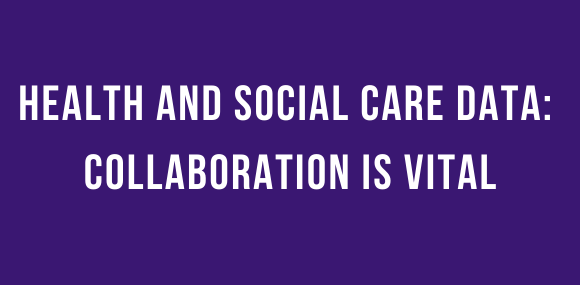Neurological Alliance: Collaboration is vital in implementing new Health and Social Care Data Strategy
23/06/2021
The Neurological Alliance welcomes many of the commitments outlined in the Department of Health and Social Care’s draft data strategy published on 22nd June 2021. However, more needs to be done to ensure that people with neurological conditions and their support groups are directly involved in shaping these initiatives – we will be working with our member organisations to ensure their voice is heard in the upcoming consultation process.
Yesterday the Department for Health and Social Care (DHSC) published their draft Data Strategy, entitled ‘Data saves lives: reshaping health and social care with data’.
The Data Strategy aims to deliver a set of commitments to build upon the extensive use of data during the coronavirus pandemic. The strategy sees digital developments as an essential aspect of the pandemic response and aims to unleash the potential of data to address long-term challenges in health and social care.
Improving how data is used and shared
The strategy is underpinned by 3 key priorities:
- Building understanding on how data is used and the potential for data-driven innovation, improving transparency so the public has control over how their data is used
- Making data sharing normal practise across health, adult social care and public health to provide the best possible care to patients and support staff
- Building the technical, legal and regulatory foundations to make this possible
Improving the quality, collection, integration and analysis of data is an essential element of improving access and experience of services for people affected by neurological conditions.
Potentially improving neurological care
The strategy includes a number of welcome commitments which could help to improve neurological care in the longer term, including:
- Making sure that the technology is in place to enable everyone across England to have easy access to their own health and care data (2022)
- Giving citizens the ability to see what research their data has informed, and who has had access to their data, as soon as the technology allows
- Collecting “client-level data” rather than aggregate data from local authorities to ensure that regular and comprehensive data is available to enable person-centred, sustainable innovation for adult social care (2023)
- The Department of Health and Social Care developing a plan for sharing data with local authorities that looks beyond the pandemic, building on the learning from the COVID-19 response
- Progress towards creating at-scale data assets that bring together the different types of health data to develop new tools for prevention, diagnostics and clinical decision-support (2023)
- Progress towards bringing together genomics data assets, and work with NHS England and NHS Improvement to ensure genomic data generated through clinical care is fed back into patients’ records (2023)
- Ensuring that each Integrated Care System has a basic shared care record in place to enable sharing of key information between GP practices and NHS trusts (2021)
But involvement of people with neurological conditions is lacking
Many of the commitments outlined in the strategy provide helpful opportunities to use data to drive improvements in neurological research, treatment and support.
However, the strategy lacks a commitment to co-produce many of the activities in the strategy. We strongly urge Government to ensure people with neurological conditions and patient groups have ample opportunity to directly shape these initiatives.
Next steps
There will be planned engagement – via an online survey – on this draft strategy with a final version published later in 2021. The survey is yet to be published but it is expected to seek views on the following areas:
- Whether the commitments outlined in the strategy and timetable for achieving them are achievable
- Whether there are any barriers to be considered when planning implementation
- How DHSC can best increase transparency and communicate progress on how data is being used shared
Working with our members
We will work with member organisations to respond to the draft survey.
Developing a data strategy for neurological care
We are also working with the Neurological Intelligence Collaborative to develop a data and intelligence strategy for neurological care – this will be published before the end of the year and will draw on many of the commitments outlined in the Government’s strategy.
Many thanks to the Specialised Healthcare Alliance for developing an initial briefing on the strategy which formed the basis of this article.





